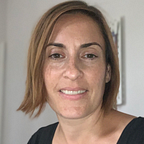Live Q&A Highlights
Full live Q&A on Facebook here.
Nicky Evans and I, hosted a live Q&A on our FaceBook page yesterday. Here are some of the questions that were asked:
Is the co-op structure suitable for Trainee Sign Language Interpreters and newer Regsitered Sign Language Interpreters? We talked about how the aim was to have a supportive business where support could be offered to Trainees and Registered Interpreters could be supported more too. Also profits being brought into the co-op could be spent on ways to support interpreter members.
Do interpreters pay to be part of the coop or pay a % of their fee to the co-op? No. It is a free to be a member and open to anyone in Merseyside who works as an interpreter (or other communication professionals) or a Deaf person who uses interpreters.
How does Signalise relate to local groups of interpreters who have set up their own websites to get more direct bookings? We have set up as a business that will make it easier for people to book interpreters and do less of their own admin. We are set up to pay VAT. Interpreters have set up websites out of a need to remove themselves from the traditional agency model, due to the pressures on pay and terms and conditions and gain business directly. Signalise won’t be in competition with local groups but our ethos is that interpreters get sustainable rates of pay and that Deaf people get a good quality service.
If successful will you be rolling this model out to other areas of the UK? The pilot is on Merseyside where there are many spoken language agencies operating. We need to get the membership and governance procedures right and test our technology. We need to test our trading model and marketing. The ultimate aim is to take over contracts from the large spoken language agencies who know nothing about (British Sign Language) interpreting.
What will we use the profits from the co-op for? We aim to use the profits to increase social value. Thsi could include interpreter training, mentoring, supervision, identify any gaps in provision, set up a pilot service and measure need for the Deaf community and use this to approach commissioners to gain more contracts.
How will you balance out the needs of different users? We have two types of members, Deaf people and interpreters. Our two groups have an interesting relationship. We can’t live without each other. Deaf people need good interpreters and interpreters need to be good to get work. If there are any differences, as a co-op using Sociocracy, we will discuss those and make decisions. Many of the issues are simple and obvious and when addressed can benefit both parties. Direct feedback from service users will benefit service delivery enormously and Deaf people can benefit from direct involvement in understanding how interpreters work.
Many more questions and answers and information were discussed so please watch if you want to find out more!
And don’t forget to donate to the Crowdfunder which ends on Monday.
